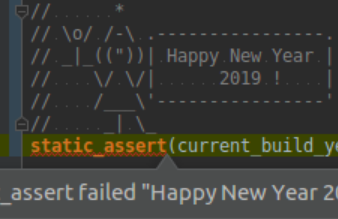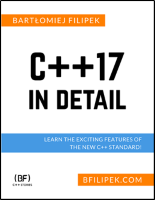Don’t forget: std::pair does lexicographical ordering, so you don’t have to--Raymond Chen
Did you know?
Don’t forget: std::pair does lexicographical ordering, so you don’t have to
by Raymond Chen
From the article:
A feature perhaps not as widely known as I thought is that the std::pair type performs lexicographical ordering, so you don't have to...

 A retrospective of all the things that happened in C++-dom in 2018:
A retrospective of all the things that happened in C++-dom in 2018: May your new years ever be happier than your old years -- now there's a great use for a monotonically increasing function!
May your new years ever be happier than your old years -- now there's a great use for a monotonically increasing function!